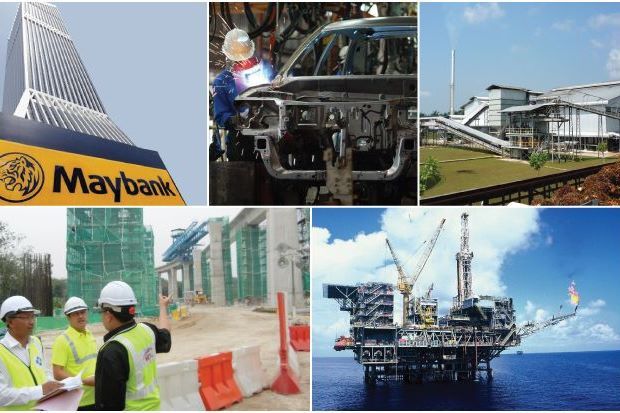Malaysia’s economy faces more headwinds to stay resilient
KUALA LUMPUR: “Malaysia’s economy is resilient” is a refrain heard countless times since growth started to slow down from 2015.
But that resilience may not hold out as the economy’s competitiveness slide and others in the same neighbourhood produce the same goods at lower cost.
The government expects the economy to grow by between 4% and 5% this year. The economy grew 4.2% for the whole of last year, the second year of slower growth and despite the green shoots seen from better exports, the market expects flat growth at best this year.
The less competitive economy will have negative repercussions for government revenue, which has come under pressure in recent years as commodity prices fell and demand for the goods and raw material produced by Malaysian factories, plantations and rigs, slowed down.
Should government revenue not grow faster, there could be more pressure on the budget and the ability to service the deficit.
Moody’s Investor Service vice president/senior credit officer Christian de Guzman said at a media briefing on April 26 that Malaysia will continue to outperform other A-rated countries in terms of economic growth although lower than the historical growth trend.
He said further fiscal consolidation can only come from higher revenue but noted that revenue as a measure of gross domestic product has fallen several years in a row and was at its lowest level in 17 or 18 years. The Goods and Services Tax (GST) has offset some of the drop in revenue but has not been able to cover the hole as much as hoped for.
“In terms of what the government can do to further fiscal consolidation efforts is likely to be on the revenue side. This is because in response to the falling revenue over the past few years, expenditure has already been curtailed quite extensively, so now that revenue is almost at a two-decade low, expenditure is also at a two-decade low,” de Guzman said.
A less competitive economy mean less government revenue because taxable income from companies and individuals will be less.
People who earn less will spend less, hence government collection of the GST will be lower.
Companies who do not see better prospects for the economy will choose to invest less and hire fewer people.
Besides exports, private consumption, the other mainstay of the economy will be under pressure. With consumer sentiment still in the doldrums and high household debt, there will be less support compared to recent years.
This year especially will be tough for the economy as consumers grapple with inflation from a weaker ringgit while firms selling consumer goods choose to push prices higher to compensate for the higher input costs.
Lower employment will also affect private consumption and economists see this as a vicious cycle.
Source: http://www.thestar.com.my/business/business-news/2017/04/27/malaysian-economy-faces-more-headwinds-to-stay-resilient/#VeRe6VGbUqpsBJO4.99


 Thailand
Thailand




